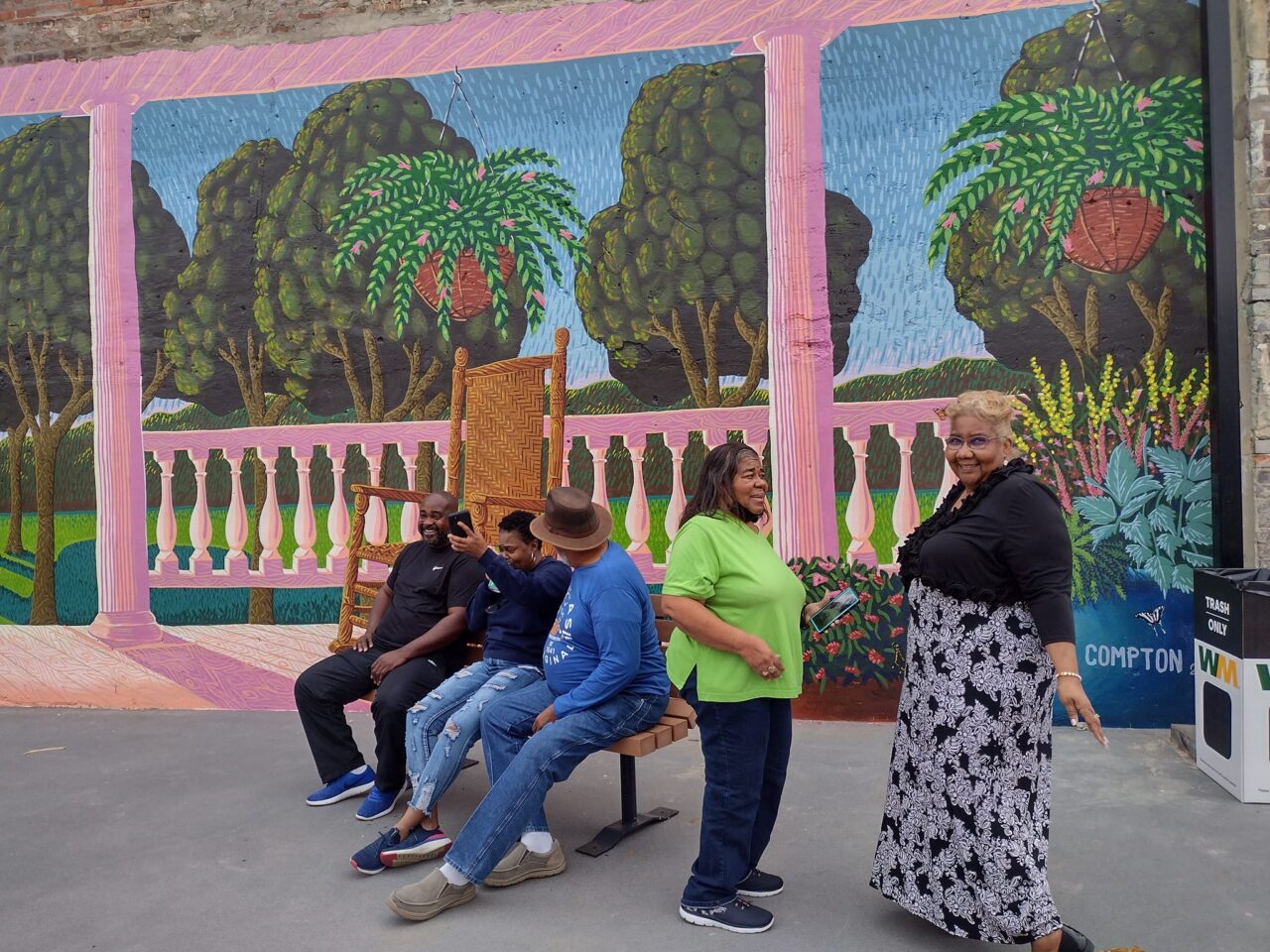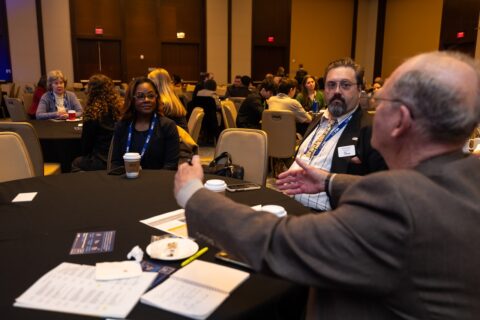By the Strong Southern Communities Initiative (SSCI) team
Every day, mayors and city executives have to decide how to fund a range of city priorities – from repairing old, dilapidated roads to implementing safe and accessible outdoor areas for seniors, often without the resources and capacity to navigate and successfully secure federal funding. This is especially true for some 5,535 southern communities with a population of less than 10,000.
Recognizing this challenge, NLC launched the Strong Southern Communities Initiative (SSCI), offering practical help and advice to municipal leaders in Alabama, Arkansas, Louisiana and Mississippi. Through financial support from the Doris Duke Charitable Foundation, SSCI specializes in assisting small, high-need communities through technical assistance, grant funding, access to resources and a peer learning network.
SSCI uses a holistic, data-driven approach to understand the challenges of a community as part of a broader ecosystem that better serves children and families. Utilizing NLC’s Federal Grant Equity Dashboard, a tool that helps cities look at disparities in health, education, workforce and housing, and the results of a data assessment, cities receive customized technical assistance to develop local action plans, knowing capacity and resources are constant barriers for many communities in the south. Through a coaching and peer learning model, city leaders can identify specific conditions of well-being they seek to address in their communities.
Small Southern Community Success Stories
1. Creating a Foundation for Improved Community Well-being in Mississippi
The Mayor of Pass Christian, MS, located on the Mississippi Gulf Coast, pop. 6,154, came to SSCI looking for more information on grants and assistance designed specifically for small cities. Pass Christian was devastated by Hurricane Katrina in 2005, and a large part of its downtown remains undeveloped. Mayor Jimmy Rafferty’s priorities include stimulating economic growth to rebuild its downtown, upgrading its harbor, promoting traffic safety for all residents, obtaining more affordable housing, and making its citizens healthier. SSCI’s Mississippi team delivered a customized, data-based needs assessment report. The findings of this report identified opportunities for economic development, making its streets safer, and workforce development that could benefit the city.
In addition, the report also uncovered some socioeconomic inequities and disadvantaged tracts that are in need of improvement. Improvement in these areas has been a challenge due to these tracts having a very low elevation and being in a designated flood zone. The Mayor will be working with SSCI to identify ways to bring improvement to these areas. The SSCI team also delivered data visualizations of health disparities and lack of healthcare coverage in parts of Pass Christian. As an active member of a number of organizations to improve healthcare outcomes in Mississippi, Mayor Rafferty plans to utilize and share this data to make the case for improved health coverage in small cities and towns in the state.

2. Upgrading Walkways for Seniors in Alabama
“The thing that I love most about being mayor is being able to advocate for, uplift, and improve the quality of life for the people in my community.”
Mayor Gwendolyn Rogers, Linden, AL
Situated in Marengo County, the City of Linden boasts a prominent senior population, with nearly a quarter of its 1,859 residents aged 65 and above and a median age of 46.2 years. These efforts include expanding walking trails, upgrading walkways, revitalizing outdoor recreational areas, and organizing summer events in parks. Through careful data analysis, the city has identified correlations between poverty rates, disability metrics, and elevated levels of transportation insecurity. In response to these findings and with support from the SSCI Alabama team, Linden is actively pursuing various funding opportunities, such as applying for the T-Mobile Hometown Grant and the AARP Community Impact grant, each valued at $50,000.
3. Expanding Entrepreneurship and Reducing Food Insecurity in Louisiana
The City of Patterson, with a population of almost 6,000, wants to retain and attract families and provide more services for children. Located almost equal distance between Lafayette, Louisiana and New Orleans, Patterson launched “Shop Paterson” to encourage citizens and the surrounding areas to shop locally to help the city’s economy grow. To ensure long-term success, a better understanding of residents’ credit history was needed to create entrepreneurship, especially among young people. SSCI’s Louisiana team delivered custom information on credit/FICO scores by age, home mortgage application rates, and debit payment trends at the county level. Data findings also revealed the existence of food insecurity, especially south of the railroad, where citizens must cross a railroad and highway to get to the nearest neighborhood market.
“We were surprised to learn that the northern area of Patterson has more access to food sources despite the southern area being more resilient financially and we are now using this data to customize initiatives to help each area of the City of Patterson address neighborhood-level challenges.”
Holden Murray, Economic and Community Development Director, City of Patterson Human Resources
Armed with this information, Mayor Rodney A. Grogan presented these findings to the city council and is in the early stages of using this data to rectify Patterson’s food desert.
4. Supporting Our Smallest Cities in Arkansas
Jericho, AR, with a population of 96, identified significant needs through an SSCI-provided needs assessment, which revealed that the city has four disadvantaged designations according to the Climate and Economic Justice Screening Tool. This data-driven approach allowed the city to better prioritize and search for potential grants. Jericho sought assistance in applying for an AR Fun Park Grant to improve their local park. The SSCI Arkansas team worked with Mayor Ida Shumpert to create a timeline that positioned the city to submit a robust grant proposal, provide essential data, ensure that all eligibility criteria were met effectively and on time, and offer feedback throughout the application process to enhance its strength. Thanks to the city’s hard work and commitment to collaboration with the SSCI team, Jericho was awarded the maximum $100,000 grant. These funds will be used to install new play equipment, grills, and park amenities, and improve access at the Jericho Town Park.
How can the Strong Southern Communities Initiative (SSCI) help you?
NLC’s Strong Southern Communities Initiative is always looking to help new cities in Alabama, Arkansas, Louisiana, and Mississippi. Fill out the initiative’s communications form to get connected to a grant navigator and learn how NLC can help your community.









